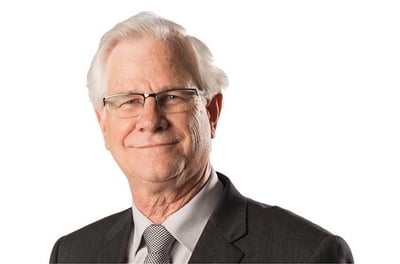Mind of Jacka: My Mind is Made Up
Blogs Mike Jacka, CIA, CPA, CPCU, CLU Aug 10, 2023

I don’t want to hear what you have to say.
You don’t want to hear what I have to say.
And no one wants to hear what anyone else has to say.
At least, no one wants to hear what anyone else has to say when that someone else has something to say that is different than what I/you/we believe.
There is a lot of “I’m right!” “No, I’m right!” that occurs between internal audit and its clients. And, when you look closely, it comes down to people not wanting to believe something that is different than what they already believe. Nowhere is this more evident than when discussing issues/findings/improvements/whatever-name-you’ve-come-up-with-to-assuage-the-client’s-sensitive-feelings. Internal auditors believe they have the answers. Clients believe internal auditors don’t know what they’re talking about. And never the twain shall meet.
Of course, such discord isn’t always the case. Most of us have situations where it all goes well, situations where conversations are based on the mutual understanding that we are working together to make things better. And some of us have relationships where such battles are few and far between. But, even in the best of relationships, we find ourselves in these faceoffs.
The client doesn’t want to hear what we have to say. They are right and they know it. And, ultimately, people do not like change. So, our challenge is to get the client to listen, change their mindset, and adapt to the new reality — the need for improvement — that we are offering. We need them to change.
To cause others to listen and change requires finesse, psychology, and, above all, listening. We know pure confrontation does not work. And most of us realize that success comes from de-escalating the confrontation — pulling emotion back from the discussion and getting back to the facts. We have to change the focus from who is wrong. Only then can we begin to gain agreement on the facts relating to what is occurring, eventually moving on to how to make things better.
Unfortunately, this is not a one-way street. We want the clients to listen to us. But we also have to be willing to listen closely to what the client is saying.
An important reason is that no one will respond positively — changing and adapting to the new ideas — if they do not believe they are being listened to. When the client sees us listening and having a genuine (emphasis on genuine) interest in what they are saying, it lays the building blocks for real discussion and progress.
Yep, that’s a really good reason. However, there is a much more important one out there — one we seem to forget.
No matter how sure we are of what we are presenting and what we believe, there is the chance that we may be wrr… be wrrrr… be wrrrro…” We may be not correct. (Sorry, I got Fonzarelli disease for a moment.)
The ability to say we’re wrrrrrong (give me a chance, I’ll get it) is powerful. It comes from listening and recognizing that, while we know a lot, our clients know just as much. It is the synergy of those understandings that leads to real value. And it leads to great relationships. Some of the strongest allies I gained in internal audit came about from meetings where we were willing to listen rather than remain wedded to our belief — and able to adapt, change, and admit that we were wrong. (There, I think I’ve finally got it.)
No matter how good the relationship, each side — client and internal audit — has a small voice inside saying, “I don’t want to hear what you have to say because it will challenge my assumptions, understandings, and beliefs.” Our battle, in all situations, whether things seem to be going well or not, is to help the client listen to our side and, with all the power we can muster, listen to their side.
And now, let’s go from the small to the large — from the internal audit world to the real world. We are at an interesting time in our culture/nation/world. The proliferation and cacophony of news, information, and noise allows us to focus on only what we want to hear. (Thank you, social media.) And that causes our beliefs to become more engrained. The vicious cycle continues as we seek out more of what we believe, and become more entrenched, and seek out, and entrench, and seek out, and entrench, ad infinitum.
And, as we embrace that entrenchment, we become afraid — yes afraid — to hear anything else.
We are all conservative by nature. Not necessarily in our political leanings, but in the way we human beings react to change. We all have an aversion to change in varying degrees. And the more entrenched our concepts, the more averse we are to such change.
The first step is recognizing when you fall in the trap and trying, unto chewing one’s own leg off, to get out of that trap. But more broadly, internal audit can be a part of the solution. In the work we do, besides helping our organizations, we are also helping those around us. Two big pieces. One, we help people learn to use logic. Two, we help them learn that change, adaptation, and listening can be beneficial.
And, of course, that means in all things — the internal audit world and the world at large — we must listen and be willing to admit that maybe, just maybe, we don’t have the full picture and we are wrrr…
We are a small candle in this dark hurricane of noise and illogic. But, nonetheless, we are a candle. We just have to keep the flame alive.


